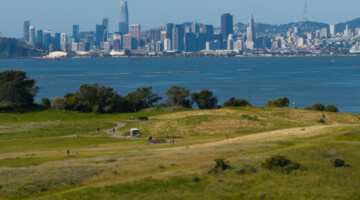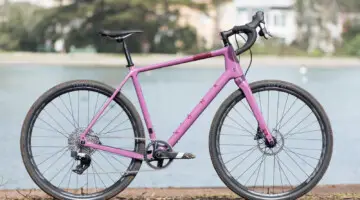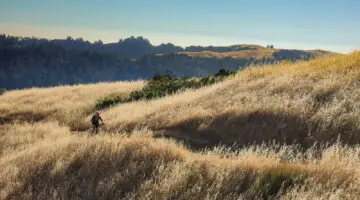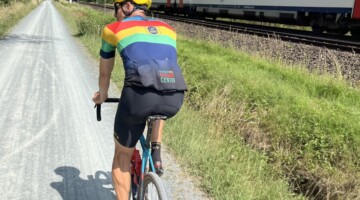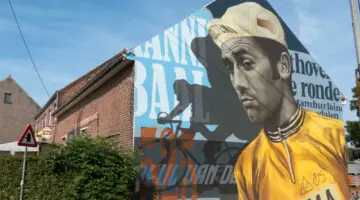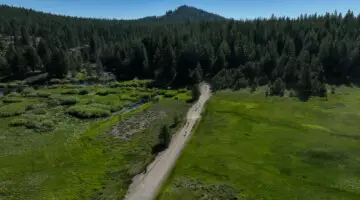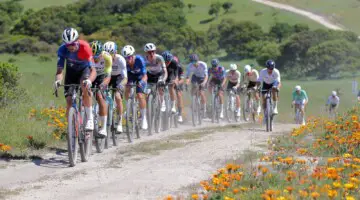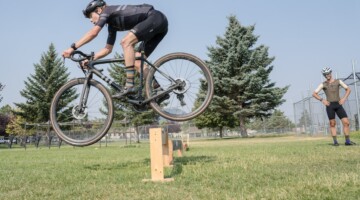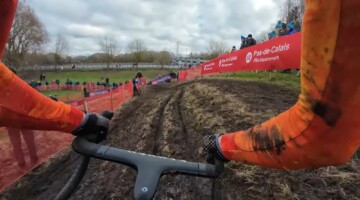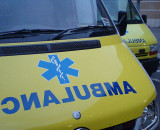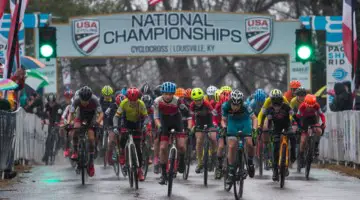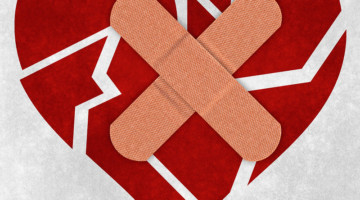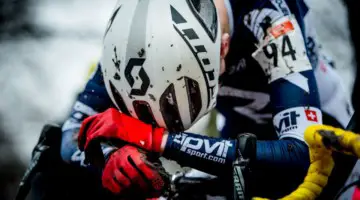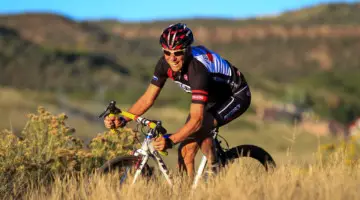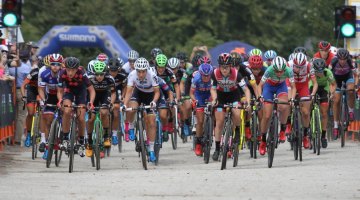by Lee Waldman
So, what does one do when the season is abruptly ended? Instead of prepping for Nationals right now, as I had originally intended, I’m mentally preparing myself for hamstring tendon repair followed by 4–6 weeks on crutches. That’s just the appetizer for this whole meal. After that, comes sloooow rehab. My goals have now officially shifted to next January in Austin.
Surgery has a devious way of limiting a person’s choices. Besides riding bikes, there are plenty of ways to “play” during a Colorado winter. Sadly, I won’t be partaking in any of them. No snowshoeing, no skate skiing! I’m just wondering how long it will be before I can walk safely again.
I’ve been able to almost let go of the idea of not racing Nationals in Boulder this year. I say almost because in each of our hearts there beats that one glimmer of hope. For me, that hope took the shape of an MRI. I had hopes that after that, I would return to training, still focused on Boulder in January. It turns out that I won’t be racing any more this year. Not the hand that I was hoping for, but it is the one that I’ve been dealt so now I’ll play it. No more racing this season simply means a shift in focus. Instead of Boulder, it’s now next January in Austin.
I had hoped that I might be snowshoeing and skate skiing this year. For the last two winters, it seems that something always came up. Weekends just flew by and we never left the city. Let’s be honest, going to the mountains in Colorado, on any Saturday or Sunday in the winter, isn’t a recipe for solitude. Neither Caren or I relished the chance to have a great day in the hills only to have it ruined by a three hour bumper-to-bumper drive home. Having both retired this past summer neither one of us has that excuse any longer. We can now enjoy the relative peace and solitude of the Colorado mountains during the week. Sounds good but… It all depends on my doctor’s schedule for my rehab.
My wife is the realist in the family; I’m the eternal optimist. She wants me to wait a bit before beginning to think about next season. I, on the other hand, prefer to look forward. Ending the season now gives me more time to prepare for the endurance mountain bike races that are already on the calendar for next summer. Being as goal-oriented as I am means that I need something to look forward to and to train for. These next few months are going to drag on, and on, and on passing like a slow moving freight train full of loaded coal cars. Without some sort of light at the end of the tunnel, I’m not sure I could sustain the motivation to heal, let alone race again.
So, intellectually, I’ve reconciled to missing Nationals. Emotionally, I’m getting there. These things do, as they say, take time. Every day I’m a bit more resigned, not comfortable, with watching and not racing come the second week in January. If that is the path I need to follow, I’ll live with it, and perhaps eventually be OK with it. As they say, it’s not world peace, it’s bike racing.
On the other hand, even if the doctor had given me the green light to race, I would have had another set of challenges. I’ve kept training since my injury but we all know the size of the chasm between training and racing. So, racing fitness would have been the roadblock. I wouldn’t have wanted to embarrass myself. Although I’ve never had the results that I’d like to have at Nationals, I am proud of the way I’ve raced this year. Having Nationals “at home” in Boulder, less than 20 miles from my front door, gave me more incentive to at least represent myself well. A national championship race should not be just another hard training ride. There’s no reason to line up without being truly ready to race, and I would not have been. End of story.
Fitness aside, there’s a mental challenge to the recovery process. Each time I attempt a transition either on or off the bike I’ll have that lingering doubt, at least for a while. That excruciating pain that I felt when I injured myself is still too fresh in my memory bank and I don’t want to go through that again. So the question will be, will I be mentally ready to put it all on the line and go full tilt, riding full speed into a dismount, transition off and then on to the bike again without hesitation? If I had to try right now, it wouldn’t be pretty. Who knows what six months of rehab will do. Hopefully, it will distance me enough so that I’ll be able to ride and race again with complete confidence. Being hesitant results in as many injuries as does thoughtlessly forging ahead even when the risks outweigh the benefits.
I’ve had a plethora of injuries in my career, some minor, some major. The one I’m facing now ranks near, if not at, the very top. It will certainly take the most time to recover from. I’m going in to the process with my eyes opened, but also with all of my fingers (and toes) crossed. I’ll keep you posted. Hopefully my process will encourage some of you. I know it will help me to think that there are people out there sending me positive energy. With luck, and a lot of work on my part, next September I’ll be lining up again, ready to tackle mud, snow, frozen ruts and barriers.
I’m also going to need motivation and moral support. I’d love to hear from those of you that might have faced the same sort of challenge I’m facing. How did you deal with it? What were your biggest fears? Most tremendous successes? In the meantime, do something for me. Something I won’t be doing for a couple of months.
Go ride your bikes.

